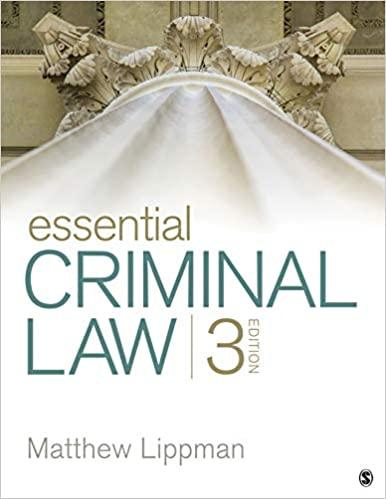Question
Who Needs Ethics? Can the Market Fix Discrimination? This Decision Point addresses the issue of discrimination in employment. Defenders of the market argue that if
Who Needs Ethics? Can the Market "Fix" Discrimination?
This Decision Point addresses the issue of discrimination in employment. Defenders of the market argue that if the market were left to its own devices, we could expect discrimination to fall by the wayside.That is, if a firm hires its employees based on prejudices and discriminatory views, then it is limiting its pool of possible employees. Another firm that does not discriminate has a larger pool of applicants and is more likely to obtain the most qualified individual for the job. Judge Richard Posner explains the economic impact of this theory in terms of race discrimination, noting that the least prejudiced "sellers" will come to dominate the market in the same way that those who are least afraid of heights dominate occupations that require working at heights.
Should corporate policy makers and government leave such issues to the market? Should employees' fears or concerns about workplace discrimination be relieved upon understanding Judge Posner's theory?Why or why not?
Consider the following questions when assessing this scenario:
1.What key facts do you need to determine whether the market can solve this challenge?Under what circumstances would Posner's argument fail? What market failures might prevent economic forces from efficiently ending discrimination?
2.What are some of the other ethical issues that come to mind when you consider this proposed "solution?"What is the effect of regulation such as Title VII on Posner's argument?Even if the market could work against discrimination, is this matter sufficiently important from an ethical perspective that society should address it more actively through legislation?
3.Who are the stakeholders involved in this particular issue?
4.What alternative responses could you propose? Are you more comfortable with management through legislation or a free market? Consider the implications if the discriminating firm held a monopoly on its good or service.
5.How would each of your alternatives affect each of the stakeholders you have identified?
6.Where might you look for additional guidance to assist you in resolving this particular dilemma?
7.The United States has more significant antidiscrimination provisions than some other countries, such as those in the Middle East. Is this information in support of or contrary to the judge's proposition?
Step by Step Solution
There are 3 Steps involved in it
Step: 1

Get Instant Access to Expert-Tailored Solutions
See step-by-step solutions with expert insights and AI powered tools for academic success
Step: 2

Step: 3

Ace Your Homework with AI
Get the answers you need in no time with our AI-driven, step-by-step assistance
Get Started


